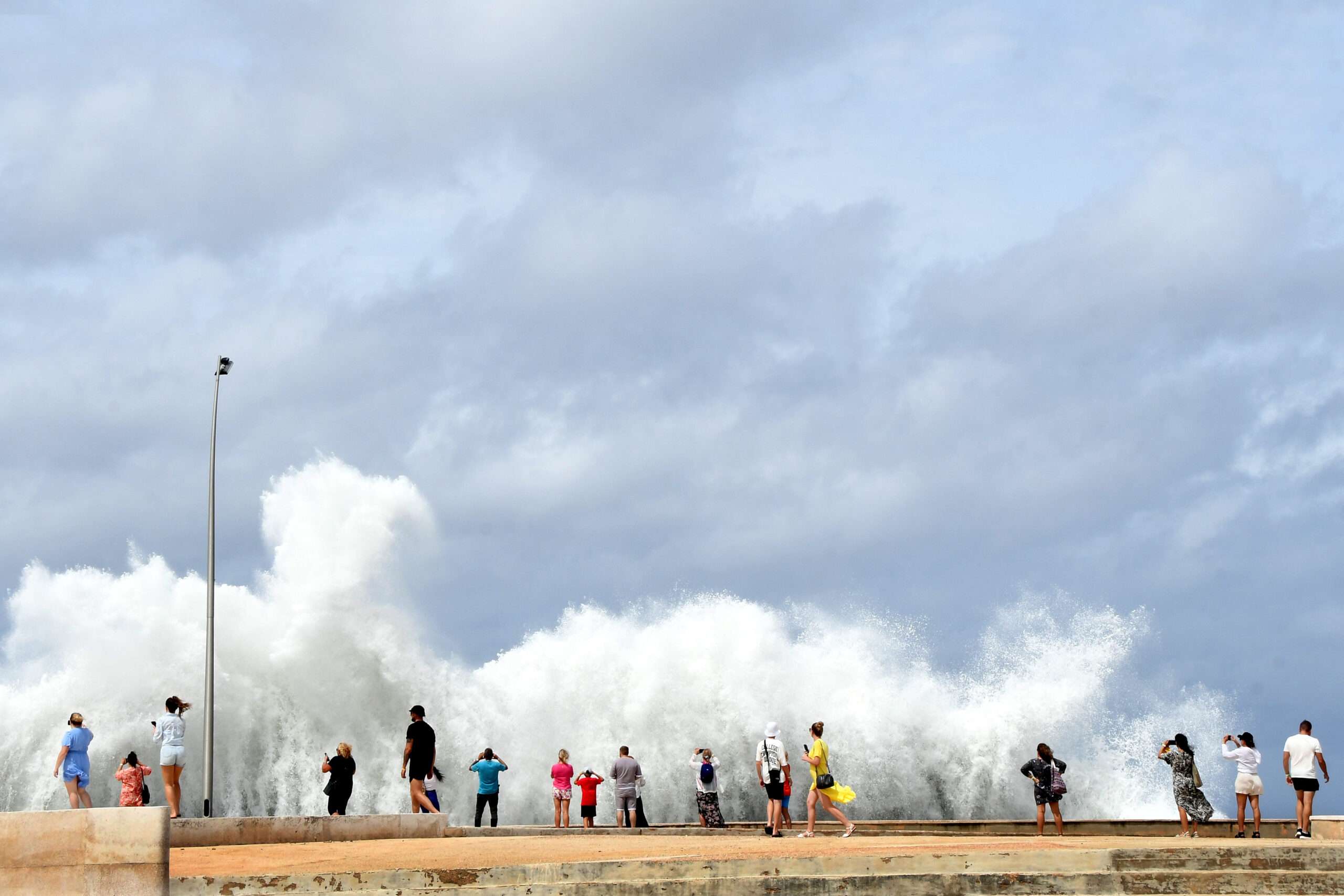Florida Posting
Hurricane Milton made a significant impact on Florida as it made landfall as a powerful Category 3 storm, ultimately causing devastation for millions. The storm, with maximum wind speeds of 120 mph, resulted in fatalities due to tornadoes spawned by its intense winds. Although Milton has since weakened to a Category 1 storm, it left many without power and inflicted substantial damage to properties across the state. The hurricane is now moving towards Florida’s eastern coast, necessitating ongoing flash flood and storm surge warnings for numerous regions. Notable damages include a stadium roof in St. Petersburg that collapsed while emergency workers were sheltering, alongside flooding of Tampa’s Hillsborough River, which fortunately experienced less severe impacts than initially feared.
Amidst discussions surrounding the frequency and intensity of hurricanes, environmentalists argue that climate change is exacerbating these storms. While skeptics have pointed out that the recent years haven’t shown a marked increase in the frequency of hurricanes, emerging evidence suggests climate change plays a role in intensifying storms. A report from World Weather Attribution highlighted that warming sea surface temperatures have increased the likelihood of storm intensification significantly. For instance, Hurricane Milton rapidly intensified from a tropical storm to a Category 5 storm due to warm Gulf waters, showcasing an alarming trend. This shift indicates storms are becoming more potent and destructive, underscoring the need for communities in hurricane-prone areas to prepare adequately.
The conversation surrounding storms like Milton also brings to light the crucial issue of infrastructure and insurance. A significant part of the damage caused by hurricanes can be attributed to construction in vulnerable regions and the failure of insurance models to appropriately account for risks. For many homeowners, federal backing through programs like the National Flood Insurance Program (NFIP) is vital as it enables them to afford insurance in these high-risk areas. Without this support, homeowners would find it exceedingly challenging to secure coverage. As risks grow, there is an urgent need to reassess building practices and insurance policies to minimize future destruction.
Political dynamics in Florida further complicate the landscape following the hurricane. The state’s political climate has shifted dramatically towards Republican stronghold, diminishing Democratic prospects. High-profile political analysts speculate on the implications of this shift for the upcoming elections, particularly for Vice President Kamala Harris, who hopes to secure Florida’s electoral votes. Despite the challenges, Harris’ performance in recent polling suggests a complex battleground where unexpected outcomes may still occur. Both major party candidates are aggressively fundraising, revealing an intensely competitive atmosphere as they prepare to face off in the coming months, making it imperative to monitor the evolving political landscape closely.
In another significant context, the response to the Israel-Hamas conflict has sparked intense protests and discussions, especially within expansive student movements. For instance, Columbia University’s Apartheid Divest group has made headlines following provocative statements related to the ongoing violence, demanding a shifted narrative in response to the situation in Palestine. Such rhetoric has not only raised concerns about inciting further violence but has also highlighted the deeply divided public sentiment regarding the Israeli-Palestinian issue, causing tensions and further polarization within social and political discussions in the U.S.
Amidst financial and political turbulence, the Federal Reserve’s actions to moderate interest rates have become a focal point of discussion. Chairman Jerome Powell’s approach of recalibrating rates, rather than making drastic changes, reflects an effort to maintain economic stability, especially in light of a robust labor market. Conversely, international dynamics continue to evolve as President Biden and Israeli Prime Minister Netanyahu discuss potential military actions against adversaries like Iran amid ongoing conflicts in the region. The multifaceted challenges arising from climate-related disasters, political shifts, and geopolitical tensions showcase a complex intersection of issues that require comprehensive attention and strategic planning to navigate the uncertainties ahead.
Share this content:












Post Comment